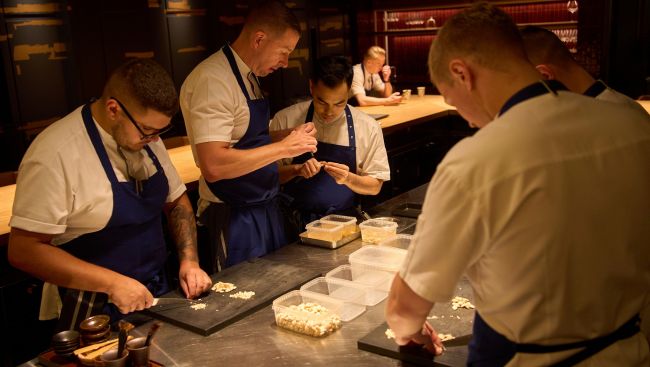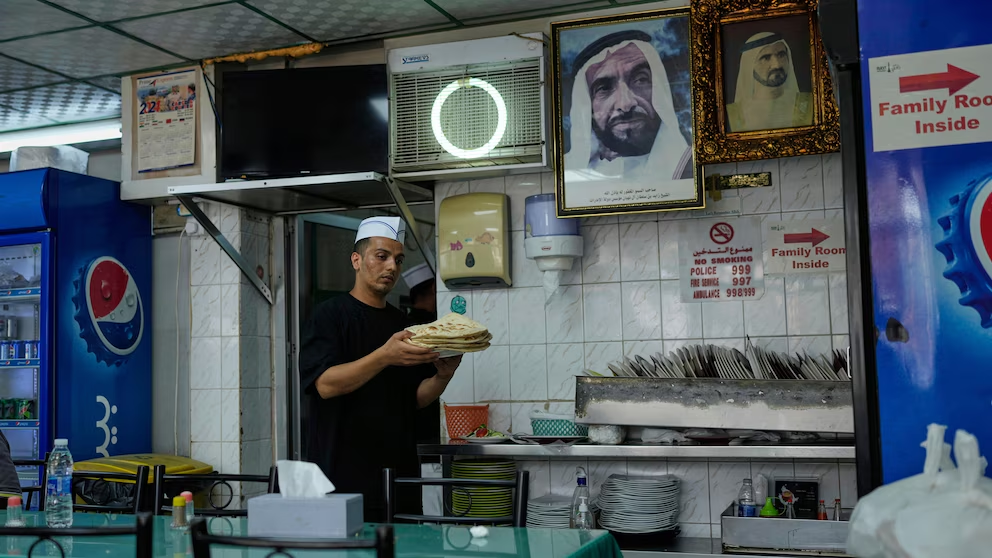The Dubai restaurant scene has always dazzled locals and tourists with its luxurious settings, innovative dishes, and endless variety. From fine dining on rooftops overlooking the glittering skyline to trendy cafes serving specialty coffees in artsy neighborhoods, Dubai has become a global culinary hotspot. However, behind this glamorous image, the Dubai restaurant scene is facing serious challenges. Rising costs, tough competition, and high failure rates are making it harder than ever for restaurants to survive.
A city known for food dreams but at a high price
Dubai’s reputation as a food lover’s paradise didn’t happen overnight. Over the past two decades, the city has worked hard to establish itself as a world-class dining destination. Celebrity chefs have opened flagship restaurants, local entrepreneurs have launched bold new concepts, and global chains have raced to get a slice of the pie.
But this rapid growth has a downside. Opening a restaurant in Dubai comes with a heavy price tag. Rent for prime locations is sky-high, and securing the best spots in malls or popular districts like Downtown Dubai or Jumeirah can cost millions annually. On top of rent, operators face high costs for licensing, labor, and utilities.

According to industry insiders, the average startup cost for a mid-sized restaurant in Dubai can range from AED 3 million to AED 7 million ($800,000 to $1.9 million). For many new entrants, these costs are simply unsustainable.
Why costs are soaring
The cost of doing business in Dubai has climbed sharply in recent years. Here are some of the main reasons:

- Rising rents: Dubai’s property market is among the most expensive in the world. Popular areas command premium rents, making it difficult for restaurants to break even.
- High staff expenses: UAE labor laws require businesses to provide accommodation, health insurance, and other benefits to staff. These additional costs add up quickly.
- Import-heavy supply chain: Dubai imports most of its food items, leading to higher costs due to shipping fees, customs duties, and currency fluctuations.
- Licensing and fees: From alcohol licenses to entertainment permits, the legal requirements to run a restaurant in Dubai are extensive and costly.
All of these factors combine to make profitability a distant dream for many new establishments in the Dubai restaurant scene.
The high failure rates no one talks about
Despite the glittering Instagram photos and endless “soft openings,” many restaurants in Dubai do not survive beyond their first year. Industry estimates suggest that over 60% of new restaurants in the city close within 18 months. The combination of high operational costs and intense competition creates a difficult environment for long-term success.
For many owners, breaking even is a struggle. Many resort to offering deep discounts, entering into delivery partnerships with big platforms (which also charge high commissions), or hosting endless promotions to stay afloat. But these efforts often erode profit margins further, trapping restaurants in a vicious cycle.
Competition at every corner
Dubai’s dining landscape is incredibly competitive. New concepts launch every month, and diners, both local and expatriate, are always eager to try something new. While this is great news for foodies, it adds immense pressure on operators to constantly innovate and adapt.
Trends in Dubai move fast. What’s popular one season might fade by the next. A few years ago, poke bowls were all the rage; today, fusion Middle Eastern-Asian concepts are in vogue. Restaurants that fail to stay on top of these shifts risk losing customers quickly.

Moreover, the social media-driven nature of dining out in Dubai means that restaurants need to invest heavily in marketing, influencer collaborations, and event hosting. This requires both money and constant creative energy, further increasing the cost burden.
Impact on small and independent restaurants
While big hospitality groups and celebrity-backed ventures can absorb losses for longer, small and independent operators often can’t. Many passionate chefs and entrepreneurs arrive in Dubai full of dreams, only to find that they can’t keep up with the financial demands.
Independent restaurants usually depend on word-of-mouth and loyal neighborhood followings. However, in a city where new dining spots are always popping up, even loyal customers may get lured away. Add to that the rising costs of supplies and utilities, and it becomes almost impossible for small businesses to stay profitable.
Success stories are rare but possible
Despite the odds, some restaurants do thrive in the Dubai restaurant scene. These success stories often share a few key traits:
- Unique, authentic concepts: Restaurants that offer something truly different, whether it’s an authentic regional cuisine or an unforgettable dining experience, tend to attract a loyal following.
- Strong financial planning: Successful operators usually have a solid understanding of the local business environment and a well-thought-out plan for managing cash flow and costs.
- Flexible and adaptive approach: Restaurants that listen to customer feedback and adapt quickly to trends can often weather tough times better than those that stick rigidly to one concept.
- Strategic location choices: Choosing a location based on the target audience, rather than simply going for the trendiest neighborhood, can make a huge difference.
How the Dubai government and industry players are responding
Recognizing the importance of the food and beverage sector to its economy, Dubai has introduced some measures to support restaurants. Initiatives such as more flexible licensing rules, support for homegrown brands, and the promotion of food festivals aim to create a friendlier environment for entrepreneurs.
However, many industry insiders argue that more systemic changes are needed. Lowering rents, providing subsidies or tax breaks, and encouraging more local food production could help ease the burden on restaurant owners. Until then, the harsh reality remains: opening and running a restaurant in Dubai is not for the faint-hearted.
The future of the Dubai restaurant scene

What does the future hold for the Dubai restaurant scene? Most experts believe that the city will continue to be a magnet for food lovers and culinary innovators. However, we can expect to see:
- Fewer but stronger players: With high failure rates pushing out weaker concepts, the market may consolidate around stronger, more resilient brands.
- More focus on delivery and cloud kitchens: The pandemic accelerated the shift toward delivery, and many operators now prioritize delivery-focused concepts that require lower overhead costs.
- Sustainability and local sourcing: With rising import costs, more restaurants may explore partnerships with local farms and suppliers.
- Technology-driven experiences: From AI-powered ordering to immersive dining experiences, technology will continue to play a larger role in attracting customers.
Tips for those dreaming of entering the Dubai restaurant scene
If you’re thinking about opening a restaurant in Dubai, here are a few tips:
- Do thorough market research: Understand what gaps exist in the market and what customers really want.
- Start small and scale up: Consider testing your concept through pop-ups, food trucks, or cloud kitchens before investing in a full-scale restaurant.
- Build a strong financial cushion: Plan for at least a year’s worth of operating expenses in advance.
- Invest in marketing wisely: Focus on authentic storytelling and building a community rather than relying solely on discounts.
- Be ready to adapt: The Dubai market changes quickly, and flexibility is key to survival.
Conclusion
The Dubai restaurant scene remains one of the most exciting and dynamic in the world, offering incredible opportunities for those who get it right. But the glamour comes with serious risks. High costs, intense competition, and fast-changing trends mean that only the strongest and most adaptable will survive.
For diners, this means endless new options and creative dishes to enjoy. For restaurateurs, it’s a constant battle to stay relevant and financially afloat. As Dubai continues to grow and evolve, its food scene will remain a vibrant but challenging frontier a true reflection of the city’s bold spirit.
Follow us on instagram: UAE STORIES
Read More: Samsung Foldable Experience Zones: Exciting Launch in Major Cities












